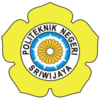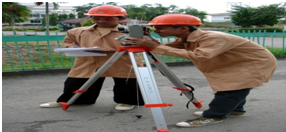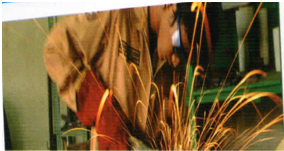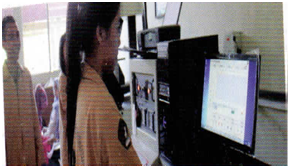Introduction
Civil Engineering is one of the two oldest departments in the State Polytechnic Sriwijaya. It was established in 1982. It has produced thousands of alumni who work for government and private agencies. Civil Engineering Department continues to develop. The strength of Civil Engineering that support its development are:
– B level of Accreditation
– Job market for graduates is promising
– The waiting time for graduates to get first job is relatively short.
– The development of infrastructure is increasing.
– It has applied science bachelor Degree (D IV).
– Production-based education system
– Academic staff with relevant education background.
Facilities available can be used not only for supporting the process of teaching and learning but also for public trainings and services.
Vision
Toward a leading vocational department in the field of Civil Engineering.
Mission
- Improve the quality of vocationaleducationin thefield of Civil Engineering under quality assurance system;
- Develop, disseminate, and applyknowledge andresearchresultsinthe field ofCivil Engineeringtobe usedin productive activitiesand to improve the quality ofpeople’s lives;
- Developorganizationandimprove the quality ofresource managementin Civil EngineeringDepartment toachieveeffective, efficient, andsustainable performance;
- Enhance mutual benefit partnershipswith third partiesin thefield ofCivil Engineeringin order to improvethe quality ofTriDharma.
Purposes
- .To increase the quality of graduates-discipline, morale, entrepreneurship, environmental insight , and relevancy to the development of industry in the field of Civil Engineering;
- To increase the dissemination of science, technology and research results in the field of Civil Engineering to be used in construction engineering;
- To increase the quality of management in Civil Engineering through empowerment and development of organization based on the principles of good governance and be able to face future challenges;
- To increase the quality and efficiency of services in the field of education in Civil Engineering Department;
- To increasethe quantityandquality ofpartnershipswith othersinthe field ofCivil Engineeringin order to improvethe quality ofTriDharma.
Targets
- The end of theacademic year2013/2014at least75% of graduates’GPA ³25;
- The end of theacademic year2013/2014at least80% of graduates’ jobwaiting period£6months;
- The end of theacademic year2013/2014at least 30% of graduates have at leastone (1)certificate ofexpertise/skill;
- The end of theacademic year2013/2014 the number facultyresearch at least 5titlesperyear;
- The end of theacademic year2013/2014the number ofcommunity servicesat least 5titlesperyear.
Strategies to Achieve Targets
Strategies for Achieving Target I
- Designandprepare materialsandlearning processthat fit the desired competenciesof stakeholders;
- Monitorandcontrol thelearningprocess;
- Improveinstructionalmethodsandmedia.
Strategies for Achieving Target 2
- Cooperate with industry;
- Establish communication links with alumni;
- Organize briefing forallprospectivegraduates.
Strategies for Achieving Target 3
- Cooperate withtheprofessional associationsprimarily with LPJKDSouthSumatra;
- Establishcommunication linkswithPolsriAlumni Association;
- Invitealumni to share experience with prospective graduates;
- Implementtrainingandcompetencytestinginthe field ofcivil engineering.
Strategies for Achieving Target 4
- Cooperate third parties in the field of research;
- Implementtrainingfor facultyonresearch methods;
- Invite lecturers from other institutions.
Strategies for Achieving Target 5
- Cooperate withstakeholdersin conductingcommunity service;
- Conduct training for community service.
Graduates’ Profile
Professional technicians and analysts who master science and technology skills in planning, monitoring and implementation in the field of Civil Engineering, as well as have good discipline, good morale, high dedication and innovative spirit.
Learning Outcomes
- Able to completeextensivework, choosethe appropriate method, and demonstratequalified and measurableperformance;
- Master theoretical concepts dan formulate procedural problem solving;
- Capable of managing team work andpreparea comprehensivewritten report;
- Responsiblefor individual workandgroup’s work achievement.
Graduates’ Competences
Core Competences
- Able to complete qualified and measurable work of planning, execution and supervision of construction projects;
- Able to adaptthe development ofscience andconstructiontechnologyup to professional standards;
- Able tocooperatewith others inplanning, executionandsupervision ofconstructionprojectsin accordancewith theprofessional code of ethics.
Supporting Competences
- Able to carry outandprocess the results ofsurveysandinvestigations;
- Able to make picture design and picture work;
- Able tomaketender documentsforconstruction works;
- Able to managethe implementationandsupervision ofconstruction works;
- Able to workin team.
Other Competences
- Able to use software of Civil Engineering work;
- Able to communicatein English.
Cooperation Class
Recognition Diploma of Past Learning Program (RPL) in collaboration with Provincial Construction Services Development Unit (LPJKP) of South Sumatra
Training Services
- Construction Workers
• Water works Workers
• Road Construction Workers
• Bridge Construction Workers
• Draftsman
• Sumeyer
• welder
• Builders
•Carpenters
• Plumbers
Production and Consultation Services
- Furniture, doorsandwindowframes.
• Soil Testing
• Surveying
• Asphalt Test
• Construction Material Test
• Concrete Test
• steel Test
Facilities
- Soil Mechanics Laboratory
• Construstion Material Laboratory
• Transportation Laboratory
• Surveying Laboratory
• Structure Laboratory
• Hydraulics Laboratory
• Masonry
• Carpentry
• Welding and Plumbing
• Drafting Studio
• Computer Studio
• Air Conditioned Classrooms, Infocuses, Spot Free Area
• Seminar Room



